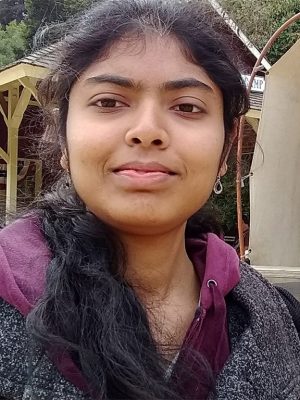
Nikhita Vedula
Ohio State University
PhD Candidate
Nikhita Vedula is a PhD candidate in Computer Science and Engineering at the Ohio State University, advised by Professor Srinivasan Parthasarathy. She received her bachelor’s degree from the National Institute of Technology, Nagpur, India, where she received a silver medal as the top graduating student in the department. Her research interests are at the intersection of data mining, natural language processing and social computing. Specifically, her research vision is to design efficient and novel machine learning and computational linguistic techniques that extract, interpret and transform the vast, unstructured digital content into structured knowledge representations in diverse contexts, such as public health and marketing. She has worked as a research intern at Nokia Bell Laboratories Ireland, Adobe Research and Amazon Alexa AI. Her work has been published at several top data mining conferences such as the Web Conference (WWW), ICDM and SIGIR. She was nominated as one of the two candidates for a Google PhD fellowship representing Ohio State University in 2018.
Research Abstract:
The advent and proliferation of Web 2.0 technologies has given rise to new modes of social interactions, and a deluge of unstructured textual information across numerous domains and languages. My research seeks to (i) retrieve and structurally represent noisy, online information content at scale; and (ii) understand and lever the functional intent, or pragmatics of such digital content under specific contexts. I proposed novel, domain-agnostic approaches to learn structured ontologies for newly emerging, low-resource domains, as well as augment existing knowledge bases with new information. New information often arises from noisy online sources such as social media users. I therefore developed an algorithm to investigate the trustworthiness of the sources of digital content. My prior work also used insights from online knowledge bases coupled with socio-behavioral patterns to study the mental health ailment of clinical depression. Another crucial application of retrieving and structuring user content that I worked on is understanding and modeling users’ intent or objectives from said content, as well as linking these intents to structured knowledge concepts. My work levered the intents of social media users extracted from their online language for citizen-driven crisis relief coordination, i.e. efficiently linking users offering various kinds of assistance to crisis victims seeking help in various locations. Knowledge representations learned from heterogeneous data types are likely to be more robust than only employing linguistic features. As a step in this direction, I worked on jointly analyzing the multimodal interactions between auditory, visual and text data attributes derived from digital content.